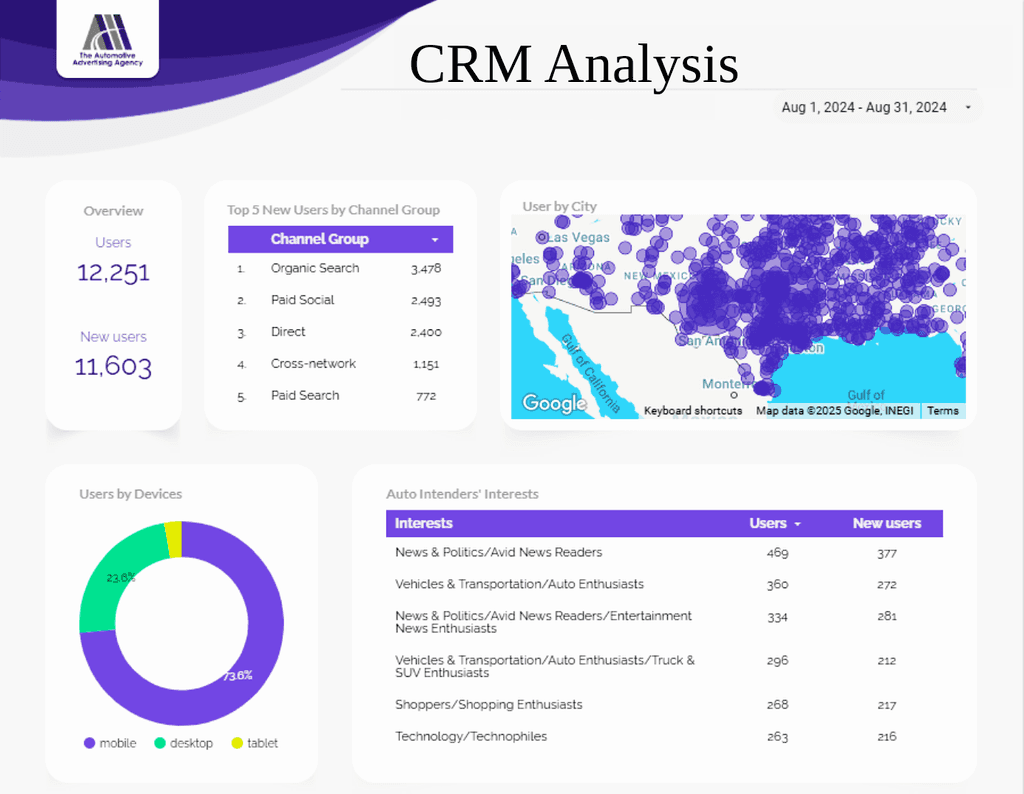

We specialize in crafting data-driven digital and traditional campaigns that captivate your audience.
Our full-service marketing agency is dedicated to making you seen everywhere! From TV and radio, to search engines and social media, we take your goals and amplify them.

Proven SEO and SEM Strategies
Testimonials
Beau Moore
GM at Rogers Ford
"The Automotive Advertising Agency is the best agency I’ve ever worked with in my many years in the automotive industry. "
Mike Giusti
Head of Advertising & Marketing, Lithia Motors
Erik Stewart
GM at Atzenhoffer Chevrolet
"I can honestly say you guys are the best agency I have worked with..."
Brittney DuPaul
Marketing Director, Red McCombs Toyota
"I’ve worked with The Automotive Advertising Agency for many years now, and they have consistently generated leads for my dealerships. I’ve seen the benefits they bring to my business, I’ve seen the benefits they bring to the businesses I’ve referred to them, and I think they would be a great choice for any dealership looking to increase their sales."
Bob Blankenship
Owner & CEO, Texas Auto Center, NIADA Dealer of the Year
"A FIVE STAR AGENCY!"
Matt McBrayer
GM at Royal Automotive Group
FAQ




